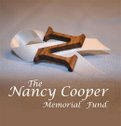From An American Childhood, by Annie Dillard.
All that winter I played with the microscope. I prepared slides from things at hand, as the books suggested. I looked at the transparent membrane inside an onion's skin and saw the cells. I looked at a section of cork and saw the cells, and at scrapings from the inside of my cheek, ditto. I looked at my blood and saw not much; I looked at my urine and saw long iridescent crystals, for the drop had dried.
All this was very well, but I wanted to see the wildlife I had read about. I wanted especially to see the famous amoeba, who had eluded me. He was supposed to live in the hay infusion, but I hadn't found him there. He lived outside in warm ponds and streams, too, but I lived in Pittsburgh, and it had been a cold winter.
Finally late that spring I saw an amoeba. The week before, I had gathered puddle water from Frick Park; it had been festering in a jar in the basement. This June night after dinner I figured I had waited long enough. In the basement at my microscope table I spread a scummy drop of Frick Park puddle water on a slide, peeked in, and lo, there was the famous amoeba. He was as blobby and grainy as his picture; I would have known him anywhere.
Before I had watched him at all, I ran upstairs. My parents were still at table, drinking coffee. They, too, could see the famous amoeba. I told them bursting, that he was all set up, that they should hurry before his water dried. It was the chance of a lifetime.
Father had stretched out his long legs and was tilting back in his chair. Mother sat with her knees crossed, in blue slacks, smoking a Chesterfield. The dessert dishes were still on the table. My sisters were nowhere in evidence. It was a warm evening; the big dining-room windows gave onto blooming rhododendrons.
Mother regarded me warmly. She gave me to understand that she was glad I had found what I had been looking for, but that she and Father were happy to sit with their coffee, and would not be coming down.
She did not say, but I understood at once, that they had their pursuits (coffee?) and I had mine. She did not say, but I began to understand then, that you do what you do out of your private passion for the thing itself...
When I left the dining room that evening and started down the dark basement stairs, I had a life. I sat to my wonderful amoeba, and there he was, rolling his grains more slowly now, extending an arc of his edge for a foot and rolling on. I gave him some more pond water.
I had hit pay dirt. For all I knew, there were paramecia, too, in that water, or daphniae, or stentors, or any of the many other creatures I had read about and never seen: volvox, the spherical algal colony; euglena with its one red eye; the elusive, glassy diatom; hydra, rotifers, water bears, worms. Anything was possible. The sky was the limit.
Thursday, June 29, 2006
Wisdom from Annie Dillard
Posted by
Kate
at
7:45 PM
![]()
Subscribe to:
Post Comments (Atom)

No comments:
Post a Comment